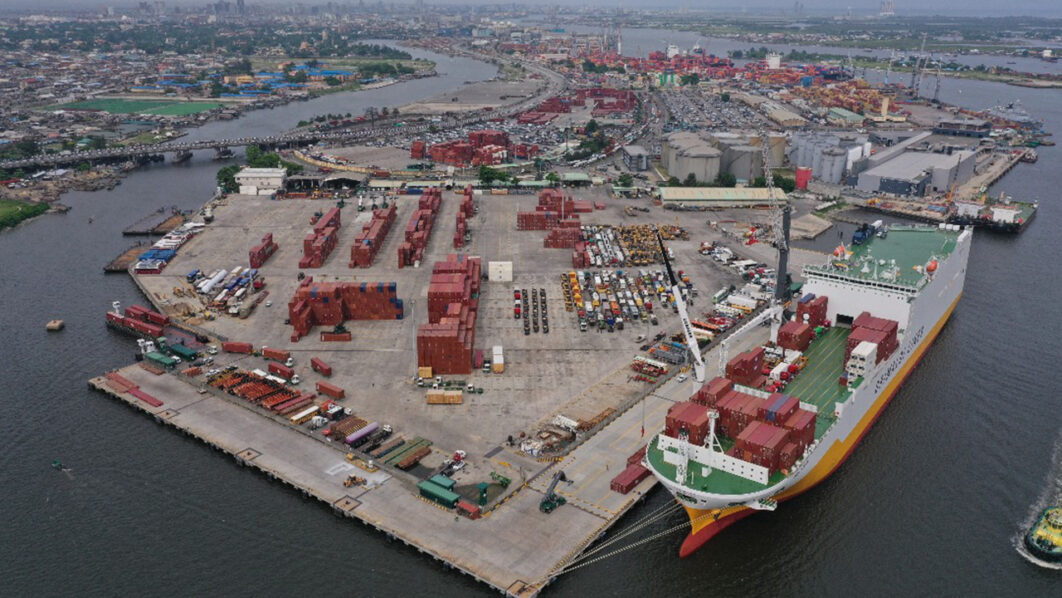
Stakeholders across the maritime industry have advocated better attention to port infrastructure, which is critical to Nigeria’s economic growth. This follows the absence of the maritime sector in President Bola Ahmed Tinubu’s list of infrastructural projects slated for commissioning in 2025 under the ‘Renewed Hope’ agenda.
Stakeholders said they desire improvement in port facilities, which are critical to the country’s global competitiveness and growth. While the president’s list covers essential sectors such as energy, transportation and urban development, it notably omits maritime infrastructure, which has historically been a bottleneck for the country’s port efficiency.
In his announcement on his X (formerly Twitter) handle, Tinubu outlined key projects spanning various sectors, which are expected to address critical infrastructure gaps and drive national development.
Among the flagship projects listed are phase one of the Lagos-Calabar Highway, three bus terminal stations in the Federal Capital Territory (FCT) and the ambitious Renewed Hope Cities.
Other significant developments include the Ajaokuta-Kaduna-Kano (AKK) gas pipeline project, the Kaduna Refinery and the 52MW Maiduguri Emergency Power Project (MEPP).
The next phase of the Presidential Power Initiative (PPI) and the 375MW Egbema Power Station in Imo State are also slated for completion in 2025. The exclusion of maritime infrastructure projects has raised alarms about the impact on trade and the competitiveness of Nigeria’s shipping industry.
Experts warn that neglecting this critical sector will exacerbate port inefficiencies, hinder economic growth and worsen trade bottlenecks. Several key maritime infrastructure projects require urgent attention, including the dilapidated state of the Tin Can, Apapa, and Onne ports and poor access roads to Eastern ports that demand over $1.1 billion in rehabilitation funding.
The Managing Director/CEO of Virgin Links Nigeria Limited, Josiah Olu, highlighted the dire condition of the Eleme axis of the East-West Road, which connects Onne Port to key economic hubs.
According to him, the road, serving as a gateway to the Eleme Petrochemicals, Indorama complex and the Port Harcourt refinery, is in such poor condition that it significantly hampers efficient cargo operations.
“Some days, you can spend as much as six hours stuck in a single spot on the road. This makes it extremely difficult for businesses, especially those in the shipping and oil sectors, to thrive,” he lamented.
He added that frequent delays, coupled with containers falling off vehicles due to bad roads, have created a hostile environment for trade. Olu emphasised that Onne Port, designated as Nigeria’s oil and gas hub, relies heavily on Eleme Road for onshore services. He said the road’s poor state has hindered the port’s optimal performance, affecting industries that depend on its services.
While Olu acknowledged government efforts to address the situation, he expressed frustration with the slow pace of progress. He warned that the region’s challenging terrain could further erode any repairs if not completed swiftly.
The General Secretary of the Association of Bonded Terminal Operators, Haruna Omolajomo, stressed that Nigeria’s maritime industry faces significant challenges if infrastructural issues are not addressed.
“Persistent problems such as high container dwell time, poor turnaround times, port congestion, and inadequate facilities have severely hampered efficiency,” Omolajomo said.
He added that unnecessary government interference in port operations and bureaucratic bottlenecks exacerbate the sector’s struggles. Omolajomo, who is also the Managing Director of Harsecom Logistics Limited, called for public-private partnerships to raise capital for building critical maritime infrastructure projects.
“As 2025 approaches, the outlook for Nigeria’s maritime industry remains mixed. While there is hope for significant improvements, urgent government intervention is required to address the sector’s obstacles and improve the business environment,” he stated.






